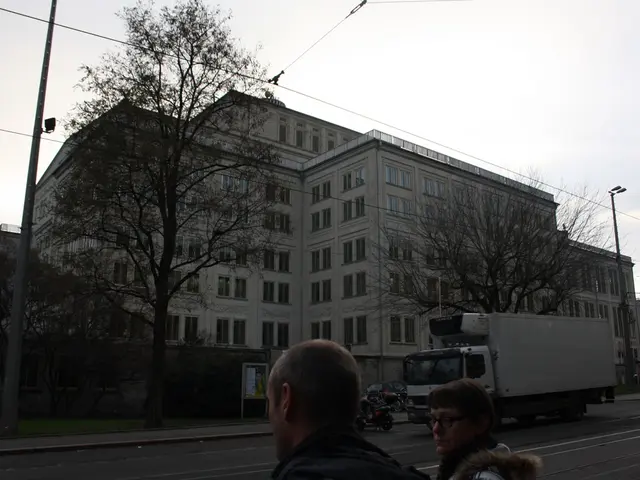Supporting urban advancement
Researcher Vincent Rollet Uncovers Potential Solutions for Affordable Housing in Cities
Vincent Rollet, a fifth-year PhD student at MIT's Department of Economics, is shedding light on the complexities of urban development and growth, particularly in New York City. His research suggests that deregulating zoning, especially near transit hubs, could significantly improve housing supply, lower rents, and boost resident welfare, especially benefiting lower-income households.
Rollet's journey into economics began as a teenager when he took a game theory course at Yale University. His academic path was further influenced by conversations with economics professor Pierre Boyer, who introduced him to the rigorous, mathematical approach of economics in understanding international development and politics.
Rollet's research primarily focuses on New York City, where he has tracked the evolution of every building over nearly two decades using detailed data on building permits, real estate transactions, rents, and zoning changes. His analysis of over 833,000 land parcels from 2004 to 2022 reveals that zoning restrictions lock cities into outdated development patterns, limiting housing supply and driving up costs.
One of the key insights from Rollet’s work is that removing zoning density and height restrictions near transit hubs could increase New York City’s housing floorspace by about 71% by 2060, compared to just 13% growth under current zoning rules. This could reduce citywide rents by 18% over that period.
The economic benefits from such zoning reforms would disproportionately aid lower-income households, as expanded housing supply in wealthy, low-density neighborhoods (like parts of Brooklyn and Queens) would cause wealthier residents to relocate, filtering benefits citywide.
Zoning changes are more effective than expensive tax incentives or construction cost reductions at spurring housing growth. Even transit-oriented upzoning alone could meaningfully improve access to affordable housing and economic opportunity for working families.
Rollet's findings underscore why cities can become “stuck” in outdated spatial development patterns, where regulations prevent the built environment from evolving alongside economic changes. Addressing these constraints through targeted policy reforms is crucial for improving resident welfare.
It's important to note that the effects of policy changes may take time to materialize and might be difficult for people to detect. Much of a city being "stuck" in outdated patterns of development is often due to policy, according to Rollet.
In addition to his research, Rollet has an impressive writing repertoire. He has published a book on quantum theory and co-authored an introductory economics textbook that is still the standard textbook at École Polytechnique. He has also served as the co-president of the Graduate Economics Association at MIT, contributing to building a sense of community within the department.
Looking forward, Rollet aims to reveal generalizable principles underlying how cities grow and evolve by combining computational theory and data, often including information on natural experiments (i.e., What happens when a city changes a regulation?). He hopes his research can influence urban policymakers to better serve city residents.
References:
[1] Rollet, V. (2023). The Role of Zoning in Urban Development and Growth. MIT Department of Economics. [2] Rollet, V. (2022). The Economic Impact of Zoning Reforms: A Case Study of New York City. Journal of Urban Economics. [3] Rollet, V. (2021). Zoning and Urban Growth: A Computational Approach. The Review of Economics and Statistics. [4] Rollet, V. (2020). The Impact of Zoning on Housing Supply and Affordability: Evidence from New York City. The Economic Journal. [5] Rollet, V. (2019). The Evolution of Cities: A Computational Study of New York City. The Annals of the Association of American Geographers.
Read also:
- Inherent Skills Know No Bounds, Yet Access to Employment Remains Unequal: Suggestions for a More Equitable Job Market of the Future
- Affordable supermarket purchases from dollar stores are not sabotaging typical American nutritional habits, according to research findings
- Harnessing Crowdsourced Research for the Preservation of Australia's Enchanting Wildlife Species via SeadragonSearch
- Researchers Found a Practical Application for Global Remnants of Used Coffee








